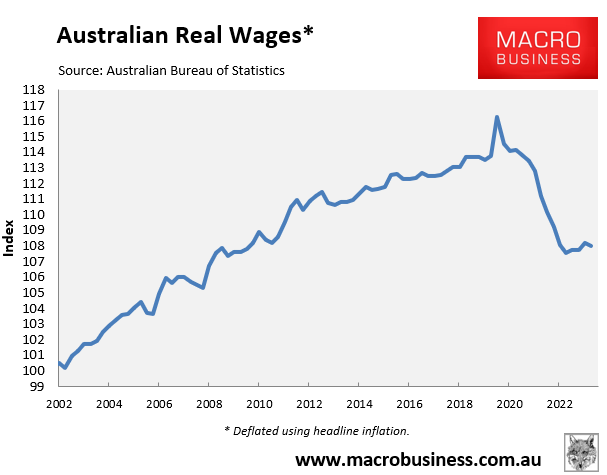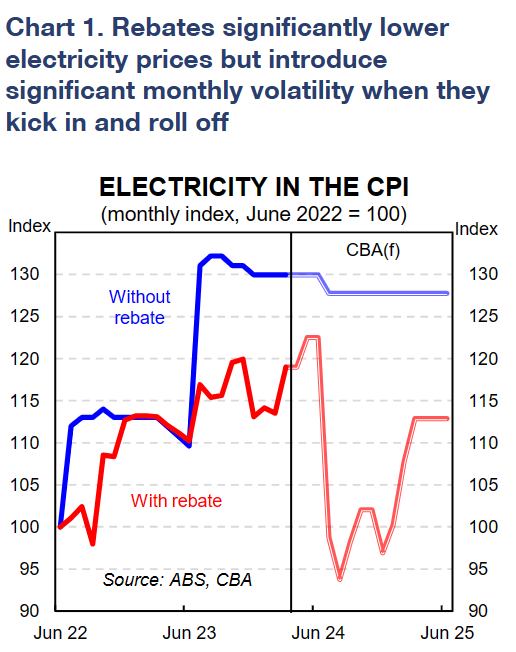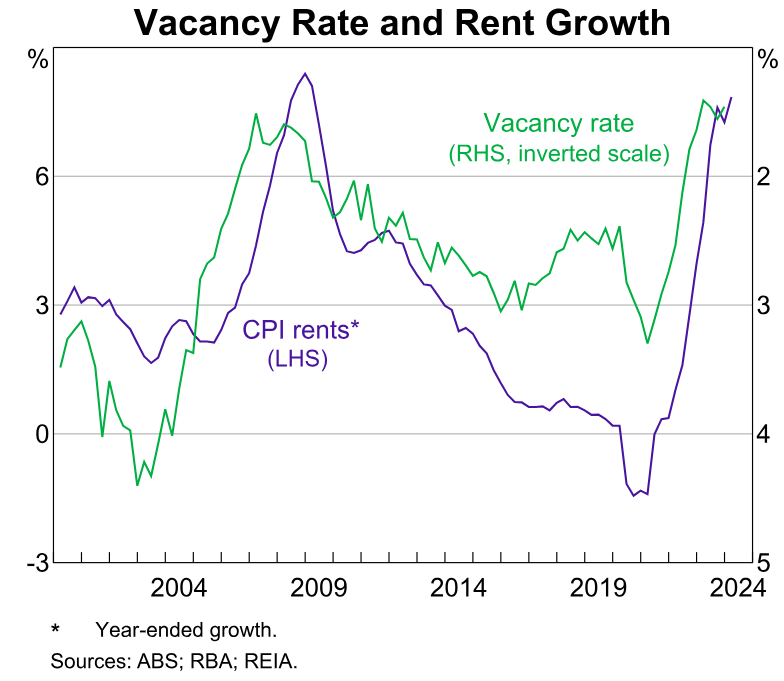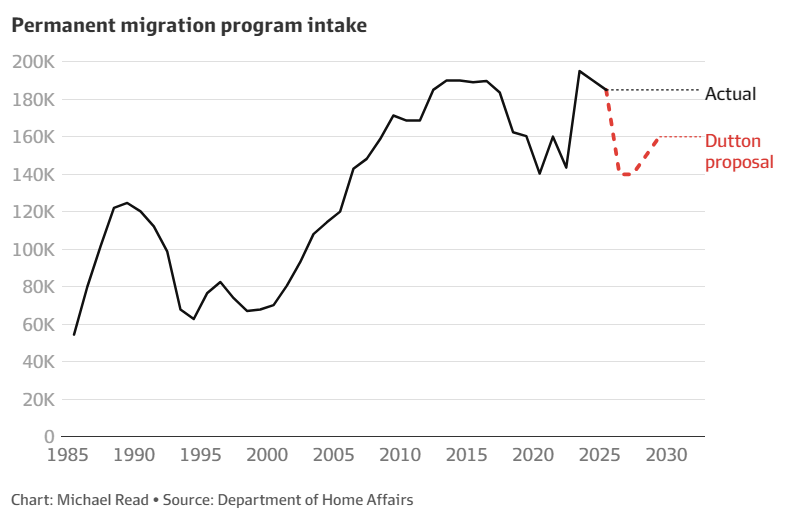If you have ventured out of your home in the past six months, you will likely be aware that the mood among Australians is very dark.
In Melbourne, it is especially bleak post-lockdown, but it is national thanks to Albo’s post-pandemic economic smash.
Now, we can put some numbers to the funk.
According to pollster RedBridge, only 11% believe that the next generation will have a better or significantly higher standard of living than the current generation.
This pessimism is not solely caused by the affordability of housing, but also by people of all backgrounds, with independent candidates and the Green Party believing things will become worse by margins of 69% and 73% respectively.
The statistics are consistent across age groups, urban and suburban areas, and income levels, with 40% of people earning more than $3000 a week believing that the next generation will have it worse.
The pervasive gloom is one of the causes of the high number of people toying with the idea of joining a third party and the comparatively low number of primary votes received by Labor and the Coalition.
The question facing the Albanese Labor government is whether it can turn things around in time for the upcoming election, whether it will end up serving a second term as a minority government, or whether it will lose altogether.
That question hangs on resolving two issues: inflation and immigration, which are linked.
Albo’s post-pandemic economic smash is unprecedented in its scale:

It was delivered largely via two huge policy blunders that are only partially reversed.
The first was the Albanese government’s cowardly response to Ukraine’s War energy profiteering, which led energy prices to the moon.
Albo’s mob has so far let the core of the problem off the hook—the East Coast gas cartel—for fear of an industry backlash.
Instead, they are focused on repackaging taxpayer dough as energy giveaways. It is difficult to say whether this has benefited Albo politically.
It lowers the heat in the CPI, but it is a trick using taxpayers own money to pay them off.
Meanwhile, the real culprits, the gas cartel, make out like subsidised bandits:

Second, woke derangement syndrome in the fake left-wing press is hiding Albo’s immigration and housing catastrophes.
Yet, how long can we ignore the screaming dwelling crisis as rents march higher inexorably and children live in ever greater numbers on the streets:

These two issues comprise most of the domestic inflation threats weighing on weak wage growth.
However, for them to become a political issue, the opposition must offer answers. Is it?
Taking immigration first, the answer is “yes” in a rhetorical sense, but not so much in reality.
Fake left media derangement syndrome ensures that opposition leader Peter Dutton is already being lathered with the “racist” brush.
Given how popular immigration cuts are with the electorate, this is a huge advantage for him.
That said, his proposed cuts are minor, and Albo is already seeking to implement them. If the electorate wakes up to this, then Dutton will only add to the general cynicism and not gain many votes:

Sadly, in terms of energy, Dutton is far behind the curve. His nuclear proposals are a fantasy and represent another wild swing of the climate pendulum that the majority will be wary of.
That said, because energy is a slow-burn issue, it is fair to say that the first issue could trump the second at the ballot box if you pardon the expression.
Dutton should double down and deepen his immigration cuts.
Make them real.

